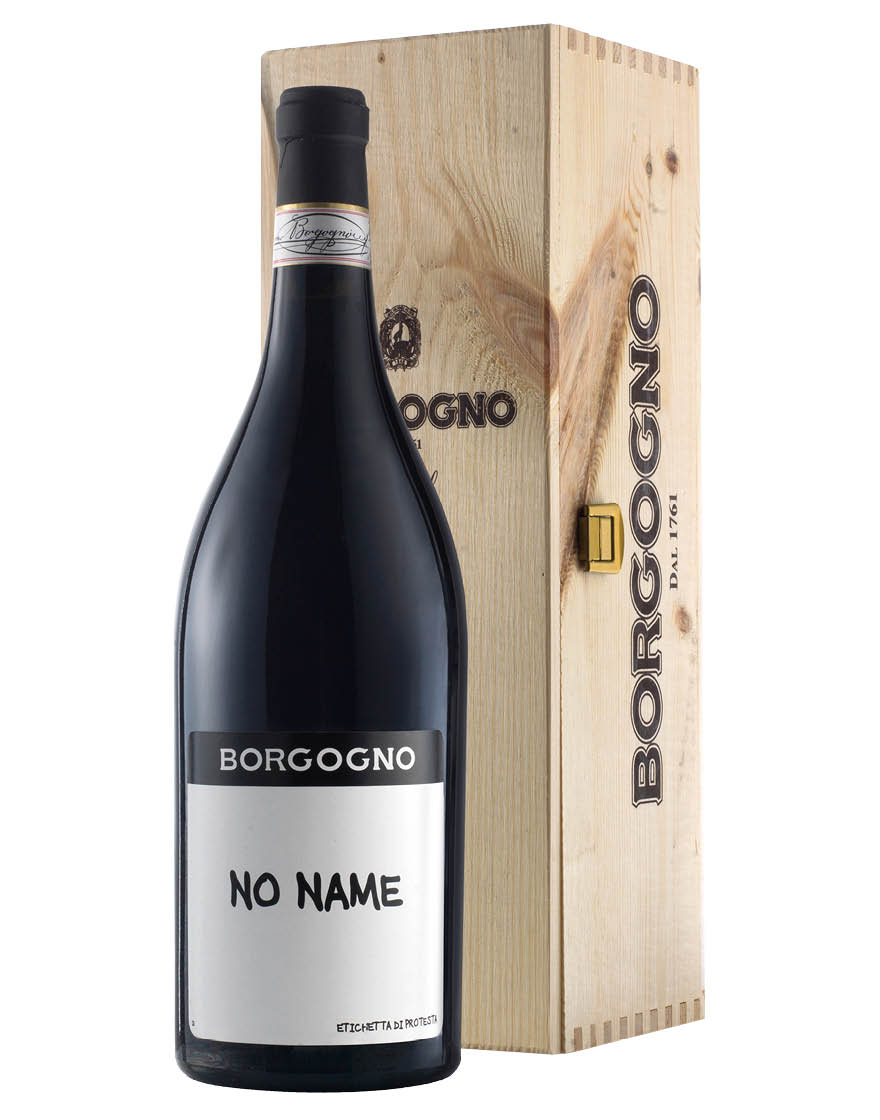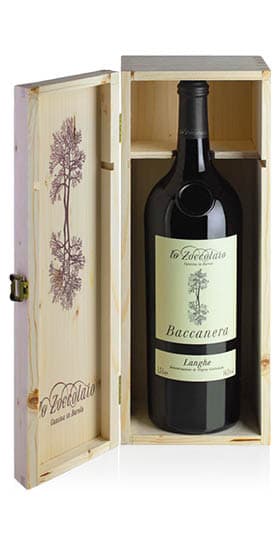Product details
Description
Borgogno's No Name is a pure Nebbiolo born in the Langhe with an interesting history behind it, whose actors are Barolo, Oscar Farinetti and the disciplinary. The vineyards are located on the hills near Barolo and rest on a limestone-clayey soil.
Harvested by hand, the grapes are spontaneously fermented in concrete tanks at a controlled temperature (22-28 °C) for about 15 days and then lightly pressed. The wine then ages in large oak barrels for 3 years and 6 months in the bottle.
In the glass, the wine is ruby red with purple hues. The nose reveals aromas of rose and violet, fresh fruit and spices. The sip is dry and velvety, with the austerity and generosity typical of Nebbiolo.
Borgogno's No Name is ideal in combination with the typical Piedmontese braised meat, with stewed game but also with a rich soup of bacon, legumes and vegetables.
The history of Borgogno's No Name
The story of Borgogno's No Name is that of a protest label that wants to make us reflect on the excess of bureaucracy often found in the wine regulations.
Born as Barolo, Borgogno's No Name is later "downgraded" to Langhe Nebbiolo DOC, to "nameless" wine, which makes it a clear label of protest against the rigidity of the bureaucracy that afflicts agriculture in Italy. Words of Oscar Farinetti, founder of Italy that has
How did it happen? Each year the wineries send wine samples to the provincial commission of tasters who evaluate the parameters of typicality according to the rules laid down by the production regulations, in this case of Barolo. Precisely on this occasion the Nebbiolo, presented by Borgogno to be Barolo, was rejected by the commission and did not obtain the DOCG.
The Farinetti family has been running the Borgogno winery since 2010. The Borgogno winery was in fact founded in 1761 and only in 2008 purchased by the influential Farinetti family. Oscar and Andrea Farinetti took control of this historic Barolo brand, restoring for example the true tradition of Langa Borgogno with the reintroduction of concrete for the fermentation of wines. Not only that: for years the company has been organically certified and has undertaken the production of Timorasso, acquiring 3 hectares of vineyards in the Tortona area.











